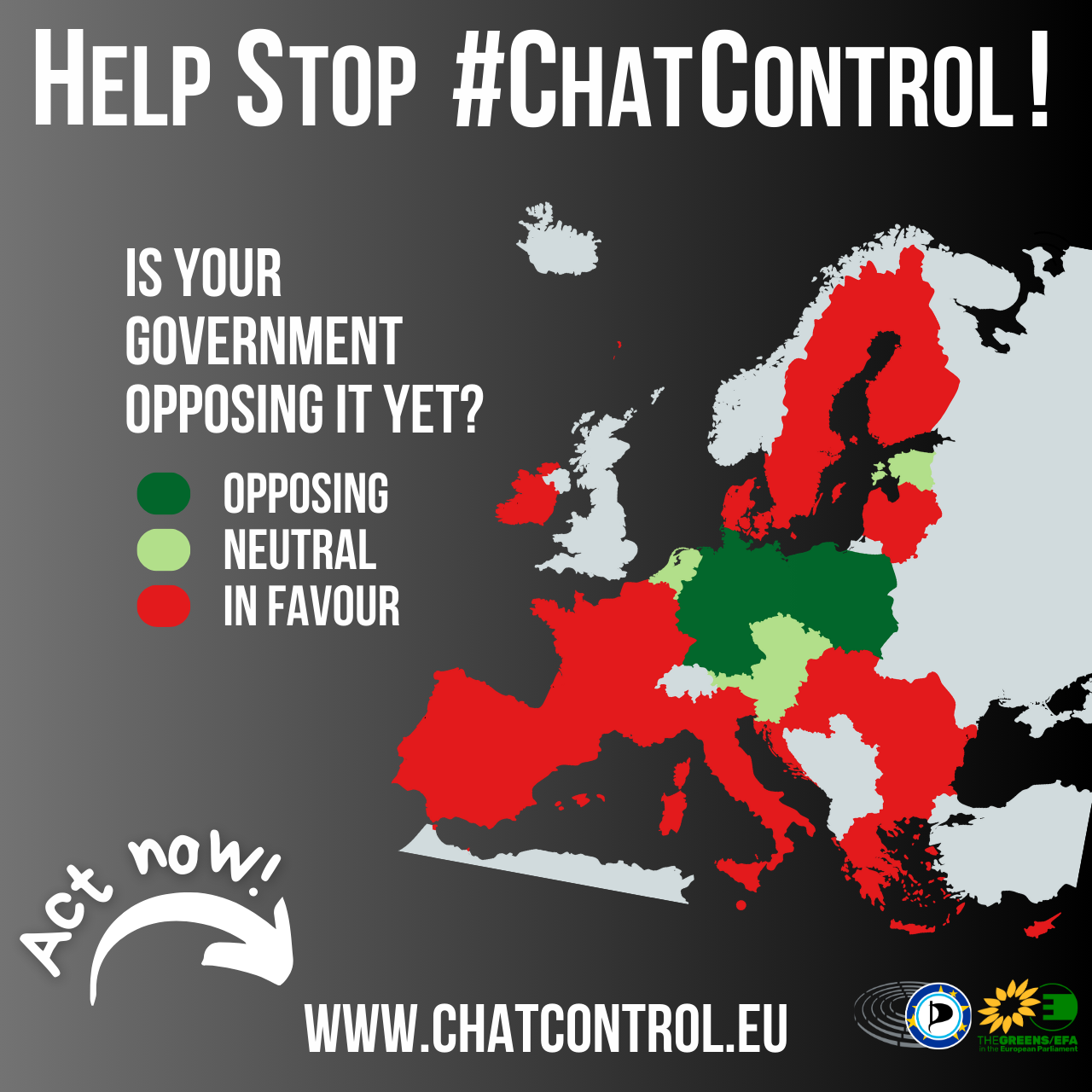Committee recommendation on chat control: Some poisonous fangs will be pulled, but indiscriminate chat control still looming
Today, the Internal Market Committee in the European Parliament (IMCO) recommended some far-reaching amendments to the draft EU Child Sexual Abuse Regulation (CSAR), also known as chat control proposal. The opinion is not binding for the lead Committee on Home Affairs (LIBE), but serves as a political orientation. Pirate Party MEP and shadow rapporteur in the lead Home Affairs Committee Patrick Breyer has a mixed view of the proposals:
“The Internal Market Committee wants to pull out various poisonous fangs from the extreme proposal made by ‘Big Sister’ Johansson: The proposed deletion of mandatory age verification safeguards the right to anonymous communication, on which whistleblowers, among others, depend. The removal of appstore censorship for young people protects their right to free and protected communication.
However, ineffective netblocks with collateral damage for many legitimate contents could still be imposed. Above all, indiscriminate chat control would still be implemented, an attack on the confidentiality and security of personal messages unprecedented in the free world. Excluding encrypted communication and telephony, leaving AI-driven text searches for alleged grooming out of it – all this would not change the fact that the proposals would be the end of the digital secrecy of correspondence for most emails and chats. Digital privacy of correspondence does not only apply to encrypted communication!
Meta already searches Facebook and Instagram private messages ‘only’ for known material, but it is precisely this flood of unreliable reports that drains urgently needed law enforcement capacities in undercover investigations against abusers, leads to the mass accusation of innocent people, and to the criminalisation of thousands of young people who are supposed to be protected. To indiscriminately target law-abiding users without suspicion would be contrary to fundamental rights and, according to independent legal opinions commissioned by Parliament and the EU Council, would not stand up in court. Such a failure of the proposed detection mechanism would be irresponsible towards victims of abuse. The Internal Market Committee only hints at what targeted detection could look like, but does not implement it.
Now it is up to the lead committee on Home Affairs to respect the fundamental right to digital privacy of correspondence and to put in place court-proof, truly effective child protection measures.”
The lead Home Affairs Committee continues to negotiate its position, with the next round of negotiations taking place this afternoon. The conservative Spanish rapporteur, Zarzalejos, wants to lock in the committee’s position by September and then strike a deal by the end of the year under the Council Presidency of his home country. The Spanish government has attracted attention with its extreme statement that secure encryption should actually be banned.

